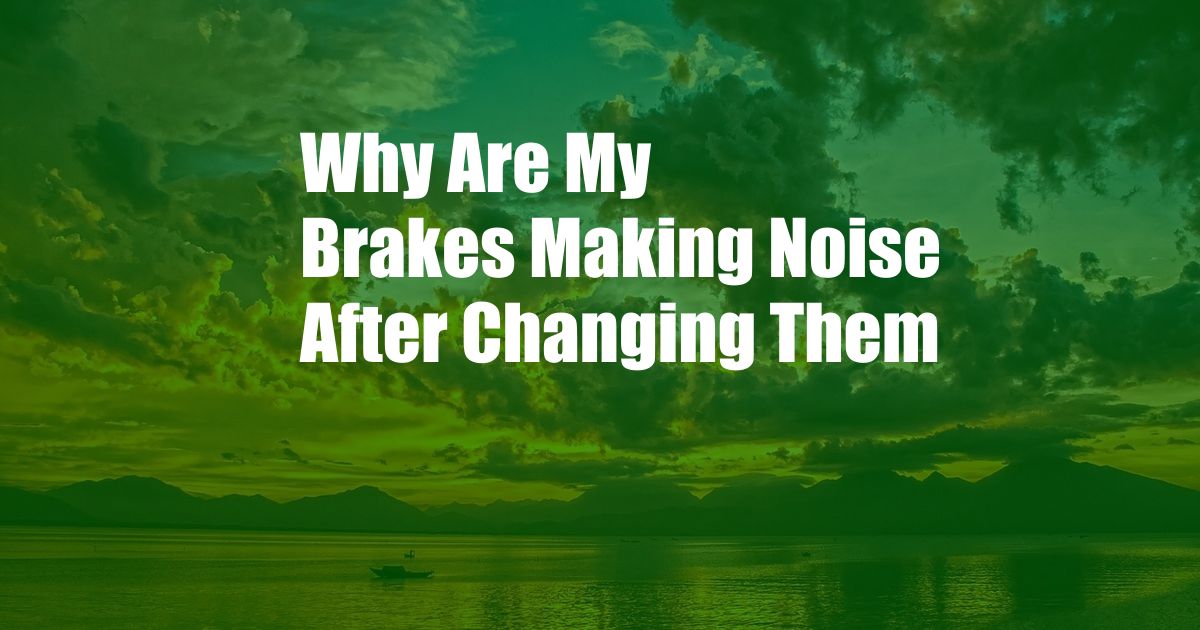
Why Are My Brakes Making Noise After Changing Them?
When I changed the brakes on my car, I expected a quieter, smoother ride. But instead, my brakes started making strange noises. This article will explore some potential causes of brake noise after replacement and provide expert guidance on addressing the issue.
Understanding Brake Noise
Brake noise is a common problem that can occur for various reasons. It’s crucial to identify the specific type of noise to determine the underlying cause.
- Squealing: High-pitched squealing usually indicates a contaminated or worn brake pad.
- Screeching: A piercing, metal-on-metal screeching sound often occurs when the brake pads are completely worn out.
- Grinding: A deep, grinding noise signifies severe wear or damage to the brake rotors or calipers.
Causes of Brake Noise After Replacement
1. Improper Installation
Incorrectly installed brake components can cause noise when applied. Ensure brake pads are seated correctly and caliper bolts are tightened to the proper torque specifications.
2. Contamination
Brake pads and rotors can become contaminated during installation with oils or brake fluid. This can lead to uneven friction, resulting in noise. Properly clean all components before assembly.
3. Incompatible Parts
Using brake parts not specifically designed for your vehicle can create fitment issues and noise. Verify compatibility by checking the manufacturer’s specifications.
4. Worn Rotors
Brake rotors may have become warped, damaged, or excessively worn during previous use. This can lead to uneven brake contact, causing noise. If rotors have significant wear, they may need to be replaced.
5. Brake Pad Composition
Different brake pad materials have varying noise characteristics. Ceramic pads tend to be quieter than semi-metallic or organic pads. Consider the noise level when selecting replacement pads.
Tips and Expert Advice
Prevent Brake Noise
- Regularly inspect brake components for wear and damage.
- Get your brakes professionally serviced according to the manufacturer’s recommended intervals.
- Use high-quality brake pads and rotors designed for your vehicle.
- Avoid driving on contaminated roads to prevent brake pad contamination.
Reduce Brake Noise
- If brake noise occurs, check for loose or contaminated components.
- If the noise persists, consider the brake pad composition and explore using quieter ceramic pads.
- Resurface or replace damaged rotors to ensure smoother brake contact.
- In severe cases, the brake calipers may need to be inspected and repaired or replaced.
Frequently Asked Questions
Q: Can brake noise indicate a safety issue?
A: Yes, excessive brake noise can indicate worn brake pads or damaged rotors, which can compromise braking performance.
Q: How long should brake pads last?
A: Brake pad lifespan varies depending on driving habits and environment. Typically, they last between 30,000 to 70,000 miles.
Conclusion
Understanding brake noise and its potential causes is essential for maintaining a safe and quiet vehicle. By addressing issues promptly and following expert advice, you can prevent or reduce brake noise, ensuring a smoother and more enjoyable driving experience. Are you interested in further exploring brake maintenance and repair?